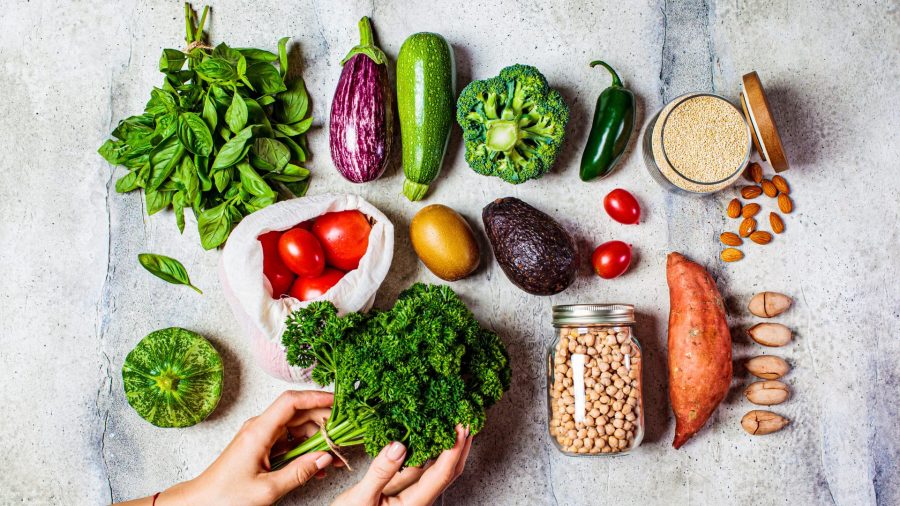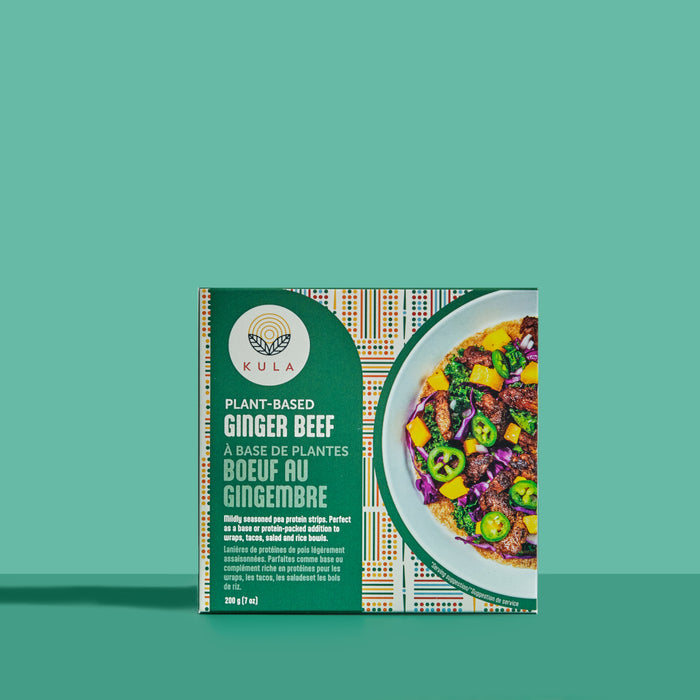How Gluten Free BBQ Sauce Elevates Your Vegan Grilling Game
How Gluten Free BBQ Sauce Elevates Your Vegan Grilling Game
Blog Article
Everything About Healthy And Balanced Food: Advantages of Enjoying Plant Based Choices
The conversation surrounding plant-based diets has gained substantial focus recently. Several people are checking out the potential wellness advantages, dietary benefits, and ecological influences linked with these nutritional selections. As people end up being much more aware of their food's impact on well-being and sustainability, questions emerge about the usefulness of adopting such a lifestyle. What specific changes can one expect, and exactly how might these selections reshape not only personal health and wellness but additionally the planet's future?
Understanding Plant-Based Diets
Many individuals link plant-based diet plans mostly with vegetarianism or veganism, these diet regimens can encompass a broad variety of consuming patterns that focus on entire, minimally refined plant foods. Such diets frequently consist of fruits, vegetables, entire grains, seeds, legumes, and nuts, while getting rid of or restricting animal items. This flexibility enables individuals to tailor their nutritional options according to dietary needs and personal choices. Some may take on a mainly plant-based diet regimen while still occasionally consuming meat or milk, often referred to as a flexitarian strategy. The focus continues to be on including more plant foods, which can cause a varied selection of dishes and tastes. Comprehending these numerous analyses of plant-based consuming is crucial for appreciating its availability and charm in contemporary food society.
Wellness Advantages of Plant-Based Foods
The health advantages of plant-based foods are considerable, offering a nutrient density advantage that supports general well-being. Research indicates that these foods can enhance heart health and wellness and play an important duty in efficient weight administration. By integrating more plant-based alternatives, people may enhance their nutritional selections and advertise long-lasting health and wellness.
Nutrient Density Advantage
Nutrient thickness plays a vital duty in the health and wellness advantages of plant-based foods, making them a compelling selection for those looking for a balanced diet regimen. Plant-based foods, such as fruits, veggies, beans, nuts, and whole grains, are usually rich in necessary vitamins, minerals, and anti-oxidants while being lower in calories. This high nutrient density permits people to consume less calories while still satisfying their nutritional demands. In addition, these foods are packed with dietary fiber, promoting digestion health and helping in weight administration. By integrating nutrient-dense plant-based options, customers can improve their overall wellness, sustain their immune systems, and minimize the risk of chronic conditions. Eventually, the nutrient thickness of plant-based foods highlights their importance in a health-conscious way of life.
Heart Health And Wellness Renovation

Weight Management Support
Along with advertising heart wellness, a plant-based diet can considerably assist in weight monitoring. This nutritional method highlights entire foods such as fruits, veggies, vegetables, nuts, and whole grains, which are usually reduced in calories and greater in fiber compared to animal-based products. The high fiber material helps raise satiation, lowering general calorie intake. Plant-based diets are often rich in vital nutrients while reduced in unhealthy fats, making it less complicated to maintain a healthy weight. Research study indicates that individuals who take on a plant-based way of living have a tendency to have lower body mass indexes (BMIs) and experience more effective weight management contrasted to those who eat meat-heavy diets. As a result, embracing plant-based choices is a strategic choice for reliable weight administration
Nutritional Value of Plant-Based Active Ingredients
Plant-based ingredients are abundant in vital nutrients, offering a varied variety of vitamins, minerals, and anti-oxidants that add to total wellness. A comparison of protein sources exposes that while pet products are often viewed as premium, many plant-based choices give sufficient protein and other advantageous substances. Comprehending the nutritional value of these active ingredients can aid people make notified dietary choices.
Necessary Nutrients in Plants
Nutrient-rich ingredients found in plants use a diverse variety of vital vitamins and minerals that add considerably to overall wellness. These components are rich in vitamins A, C, and K, which support immune feature, vision, and blood clotting, specifically. In enhancement, plants supply crucial minerals such as potassium, calcium, and magnesium, vital for heart health and wellness, muscular tissue function, and bone toughness. The presence of fiber in plant-based foods help digestion and advertises a healthy and balanced intestine microbiome. Antioxidants, found abundantly in veggies and fruits, aid combat oxidative anxiety and lower swelling. Several plant foods are reduced in calories yet high in nutrients, making them a superb choice for those seeking to preserve a healthy and balanced weight while ensuring ideal nutrient consumption.

Comparing Healthy Protein Resources
Protein resources differ significantly in their nutritional accounts, with plant-based active ingredients providing one-of-a-kind advantages. Unlike pet healthy proteins, which commonly consist of hydrogenated fats and cholesterol, plant healthy proteins tend to be reduced in these unhealthy components. Legumes, nuts, seeds, and whole grains are abundant in important amino acids, fiber, vitamins, and minerals. For instance, lentils supply high healthy protein content alongside significant iron and folate, while quinoa is a full healthy protein, offering all 9 vital amino acids. Additionally, plant-based proteins are usually come with by anti-oxidants and phytochemicals that support overall health and wellness. The change to plant-based protein sources not only improves dietary intake yet additionally aligns with sustainable nutritional methods, decreasing ecological influence and advertising lasting health advantages.
Environmental Effect of Plant-Based Eating
As recognition of climate adjustment grows, lots of individuals are exploring sustainable dietary choices that can significantly minimize their ecological footprint. Plant-based eating has actually become a significant contributor to decreasing greenhouse gas emissions, which are mainly related to animals manufacturing. The growing of fruits, beans, vegetables, and grains typically needs less resources, such as water and land, contrasted to animal farming. In addition, plant-based diets can bring about decreased deforestation, as less land is required for grazing livestock or expanding pet feed. By changing in the direction of plant-based alternatives, customers can support biodiversity and promote much healthier ecological communities. In general, welcoming plant-based eating not just benefits personal health however also stands for an important action toward ecological sustainability and preservation initiatives.
Conquering Common Misconceptions
While many people recognize the benefits of a plant-based diet plan, several misunderstandings typically hinder them from totally accepting this way of living. A typical belief is that plant-based diet plans do not have adequate protein; however, many plant sources, such as vegetables, nuts, and tofu, supply ample protein. Additionally, some think that this diet regimen is costly, when in reality, staples like beans, rice, and seasonal vegetables can be quite inexpensive. One more misconception is that plant-based consuming is extremely restrictive, whereas it in fact supplies a diverse selection of foods and tastes. Lastly, many fret that a plant-based diet regimen might result in deficiencies, yet with appropriate preparation, people can obtain all necessary nutrients, consisting of vitamins and minerals, while taking pleasure in a wide range of delicious dishes.
Tips for Transitioning to a Plant-Based Way of life
Making the change to a plant-based lifestyle can be an enhancing experience, though it usually calls for some guidance to browse the first changes. People are encouraged to start slowly, incorporating even more fruits, veggies, legumes, and entire grains right into their meals while decreasing meat and dairy consumption. Meal planning is essential; preparing a weekly menu can help reduce the adjustment and protect against last-minute harmful options. Discovering cooking techniques and new recipes can additionally maintain and boost the experience enjoyment regarding plant-based consuming. In addition, joining support system or neighborhoods can supply motivation and share important suggestions. Staying notified concerning nourishment warranties well balanced dishes, preventing deficiencies while promoting a healthy, satisfying plant-based lifestyle.

Delicious Plant-Based Meal Concepts
Exploring tasty plant-based meal ideas can inspire people to accept a more nourishing Plant Based Beef diet regimen. One popular choice is a hearty quinoa salad, including cherry tomatoes, cucumber, and a spicy lemon-tahini clothing. An additional favorite is a tasty lentil stew, packed with carrots, celery, and great smelling herbs, ideal for a comforting supper. For breakfast, overnight oats made with almond milk, chia seeds, and topped with fresh berries offer a nutritious beginning to the day. In addition, a dynamic vegetable stir-fry with tofu and a selection of vivid veggies can be a quick yet pleasing meal. Ultimately, velvety avocado toast on whole-grain bread, sprinkled with seeds and seasonings, offers a basic yet delicious treat. These meals showcase the variety and splendor of plant-based consuming.

Frequently Asked Inquiries
Can a Plant-Based Diet Regimen Provide Sufficient Protein?
The question of whether a plant-based diet regimen can offer enough protein prevails. Numerous resources, consisting of vegetables, nuts, seeds, and whole grains, can fulfill protein requires properly, supporting a balanced and nutritious diet regimen for individuals.
Are Plant-Based Diet Regimens Appropriate for Children?
The suitability of plant-based diets for youngsters depends upon careful planning. Sufficient nutrients have to be assured, consisting of minerals, vitamins, and proteins. With correct assistance, such diets can sustain healthy growth and development in kids.
Exactly how Do I Eat in restaurants on a Plant-Based Diet plan?
Dining out on a plant-based diet regimen involves seeking dining establishments with varied menus, requesting for alterations, and discovering vegan-friendly options. Planning ahead and connecting nutritional choices can boost the dining experience while maintaining dietary options.
What Prevail Irritants in Plant-Based Foods?
Typical irritants in plant-based foods consist of soy, gluten, nuts, and seeds - Plant Based Chicken. People complying with a plant-based diet regimen should understand these irritants and read labels meticulously to avoid adverse responses and assure secure usage
Can Plant-Based Diets Help With Fat Burning?
Research study indicates that embracing a plant-based diet may facilitate weight loss due to its commonly lower calorie thickness and find more info greater fiber web content. This combination can improve satiation, assisting people handle their caloric intake successfully. Several people connect plant-based diet regimens primarily with vegetarianism or veganism, these diets can encompass a wide variety of consuming patterns that focus on entire, minimally processed plant foods. Nutrient density plays a necessary function in the wellness advantages of plant-based foods, making them an engaging choice for those seeking a balanced diet. Plant-based diet plans have been revealed to noticeably improve heart wellness, as they commonly contain elements that support cardio function. In addition to advertising heart wellness, a plant-based diet plan can considerably help in weight monitoring. A typical belief is that plant-based diets lack enough protein; you could look here nevertheless, countless plant sources, such as beans, nuts, and tofu, give sufficient healthy protein.
Report this page